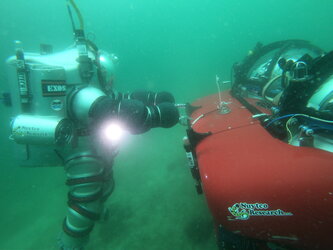Accept all cookies Accept only essential cookies See our Cookie Notice

About ESA
The European Space Agency (ESA) is Europe’s gateway to space. Its mission is to shape the development of Europe’s space capability and ensure that investment in space continues to deliver benefits to the citizens of Europe and the world.
Highlights
ESA - United space in Europe
This is ESA ESA facts Member States & Cooperating States Funding Director General Top management For Member State Delegations European vision European Space Policy ESA & EU Space Councils Responsibility & Sustainability Annual Report Calendar of meetings Corporate newsEstablishments & sites
ESA Headquarters ESA ESTEC ESA ESOC ESA ESRIN ESA EAC ESA ESAC Europe's Spaceport ESA ESEC ESA ECSAT Brussels Office Washington OfficeWorking with ESA
Business with ESA ESA Commercialisation Gateway Law at ESA Careers Cyber resilience at ESA IT at ESA Newsroom Partnerships Merchandising Licence Education Open Space Innovation Platform Integrity and Reporting Administrative Tribunal Health and SafetyMore about ESA
History ESA Historical Archives Exhibitions Publications Art & Culture ESA Merchandise Kids Diversity ESA Brand Centre ESA ChampionsLatest
Space in Member States
Find out more about space activities in our 23 Member States, and understand how ESA works together with their national agencies, institutions and organisations.
Science & Exploration
Exploring our Solar System and unlocking the secrets of the Universe
Go to topicAstronauts
Missions
Juice Euclid Webb Solar Orbiter BepiColombo Gaia ExoMars Cheops Exoplanet missions More missionsActivities
International Space Station Orion service module Gateway Concordia Caves & Pangaea BenefitsLatest
Space Safety
Protecting life and infrastructure on Earth and in orbit
Go to topicAsteroids
Asteroids and Planetary Defence Asteroid danger explained Flyeye telescope: asteroid detection Hera mission: asteroid deflection Near-Earth Object Coordination CentreSpace junk
About space debris Space debris by the numbers Space Environment Report In space refuelling, refurbishing and removingSafety from space
Clean Space ecodesign Zero Debris Technologies Space for Earth Supporting Sustainable DevelopmentApplications
Using space to benefit citizens and meet future challenges on Earth
Go to topicObserving the Earth
Observing the Earth Future EO Copernicus Meteorology Space for our climate Satellite missionsCommercialisation
ESA Commercialisation Gateway Open Space Innovation Platform Business Incubation ESA Space SolutionsLatest
Enabling & Support
Making space accessible and developing the technologies for the future
Go to topicBuilding missions
Space Engineering and Technology Test centre Laboratories Concurrent Design Facility Preparing for the future Shaping the Future Discovery and Preparation Advanced Concepts TeamSpace transportation
Space Transportation Ariane Vega Space Rider Future space transportation Boost! Europe's Spaceport Launches from Europe's Spaceport from 2012Latest
Submarines for space
Thank you for liking
You have already liked this page, you can only like it once!
Submarines are emerging as a unique research platform to study human adaption to extreme environments – from ocean depths to outer space.
ESA, the Portuguese Space Agency and the Portuguese Navy are now using these vessels to recreate isolation and confinement challenges for space exploration.
Submarines replicate the isolation, confinement and operational challenges of space missions, making them ideal for studying how these conditions affect crew members and for developing strategies to help them cope.
The first crew of the SubSea project has started its immersion for a 60-day submarine mission. A scientific team from universities in Germany, Italy and Portugal is studying how stress, mood and crew dynamics evolve in cramped quarters, much like space missions.
To understand how body and mind adapt throughout the mission, scientists use questionnaires and collect hair and saliva samples. The results help them track stress markers like cortisol, as well as monitor changes in the crew’s immune health.
Integrating knowledge from submarine and astronaut research communities could drive innovation in healthcare for polar stations, military deployments, hiking expeditions, populations living in prolonged darkness, and even mining operations. Findings could address clinical disorders such as seasonal affective disorder, depression, and sleep disturbances.
The following spokespeople appear in this video:
- Daniel Neuenschwander, ESA Director of Human and Robotic Exploration.
- Andreas Mogensen, ESA astronaut.
- Inês Antunes, SubSea science coordinator for ESA.
- Ricardo Conde, President of the Portuguese Space Agency.
- Admiral Henrique Gouveia e Melo, Chief of the Portuguese Naval Staff.
-
CREDIT
ESA/Portuguese Space Agency/Portuguese Navy This video includes third party content. It shall not be modified, and parts of the video (e.g. footage, animations, music etc.) shall not be used in other productions without explicit authorisation by ESA. -
LICENCE
ESA Standard Licence
-
Closed captions available Captions and subtitles are available (automatically generated by YouTube) - select your language using the YouTube player controls. A non-YouTube version is available using the 'download' button above.
-
Documentary
-
-

Dining in a submarine

Portuguese submarine for space research

Portuguese submarine from above

Subsea scouting with NEEMO NXT















 Germany
Germany
 Austria
Austria
 Belgium
Belgium
 Denmark
Denmark
 Spain
Spain
 Estonia
Estonia
 Finland
Finland
 France
France
 Greece
Greece
 Hungary
Hungary
 Ireland
Ireland
 Italy
Italy
 Luxembourg
Luxembourg
 Norway
Norway
 The Netherlands
The Netherlands
 Poland
Poland
 Portugal
Portugal
 Czechia
Czechia
 Romania
Romania
 United Kingdom
United Kingdom
 Slovenia
Slovenia
 Sweden
Sweden
 Switzerland
Switzerland


























